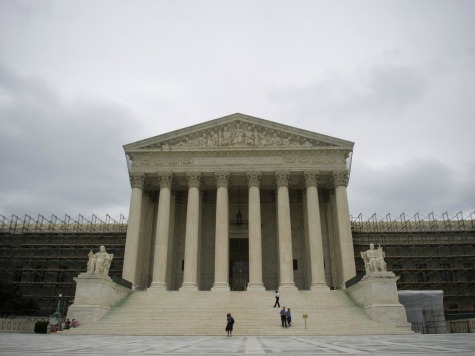
Today Texas Gov. Rick Perry signed into law a pro-life bill which will very likely be upheld by the Supreme Court. The law disallows most abortions after 20 weeks, the point by which an unborn child can fully feel physical pain and therefore would actually experience the agony of dying during the abortion procedure.
It also requires the doctor performing the abortion to be credentialed to admit patients at a local hospital, so if anything goes wrong during the abortion the doctor can personally get the mother immediate medical attention.
“This is an important day for those who support life and for those who support the health of Texas women,” said Perry. “In signing [this bill], we celebrate and further cement the foundation on which the culture of life in Texas is built.”
Pro-life advocates praised Perry and the Texas legislature. Family Research Council president Tony Perkins said, “We applaud the brave state leaders–including Gov. Perry–who refuse to back down from defending human dignity, even in the face of pressure and harassment.” He was referring to the nationwide efforts of abortion supporters who portrayed this law as a “war on women” by requiring a woman who wants an abortion to make that decision before she’s five months along in her pregnancy.
This law–or one of the other 20-week abortion laws that have recently been enacted and are being challenged in court–is very likely to be upheld by the U.S. Supreme Court. In one of its most infamous decisions, the Supreme Court declared a right to abortion in its 1973 case Roe v. Wade, even though nothing related to abortion is mentioned in the Constitution.
Abortion had always been an issue that state legislators decided at the local level in accordance with the voter’s wishes, which is the constitutional norm in our democratic republic. Roe instead made this an issue to be decided by unelected judges.
In 1992, the Court revisited abortion in Planned Parenthood v. Casey. By a 5-4 vote, the Court declined to overrule Roe, but held that although it is a right, abortion is not a fundamental right such as free speech, religious liberty, or the right to own a gun, and therefore opened the door for heavy regulations and restrictions on abortion.
The test for abortion cases is whether the law imposes an “undue burden” on a woman seeking abortion before the child could live outside the womb (which has been at 24 weeks in recent years, but with advances in medicine that line continues to move sooner in the pregnancy). After that point–called “viability”–Casey allows abortion to be completely banned so long as the pregnancy does not endanger the life or health of the mother.
Justices Sandra Day O’Connor and Anthony Kennedy were the key votes in Casey. Of the two, O’Connor was pro-abortion and Kennedy leans against abortion. With the solidly-conservative Samuel Alito taking O’Connor’s seat in 2006, the new reality is that any abortion restriction that is good enough for Kennedy should survive a court challenge.
This Texas law (or one of its counterparts in Wisconsin or another state) will show whether this theory is correct. If you carefully study Kennedy’s jurisprudence–not only regarding abortion but many other issues as well–it seems Kennedy does not like the idea of completely shutting the door on federal courts saying women can abort their pregnancies–but wants to leave the door cracked open, not wide open.
If that is true, this law and many other restrictions should be upheld. One of these laws should be before the Supreme Court in the next 18 months, with a decision by summer 2015.
Breitbart News legal columnist Ken Klukowski is senior fellow for religious liberty at the Family Research Council and on faculty at Liberty University School of Law.

COMMENTS
Please let us know if you're having issues with commenting.